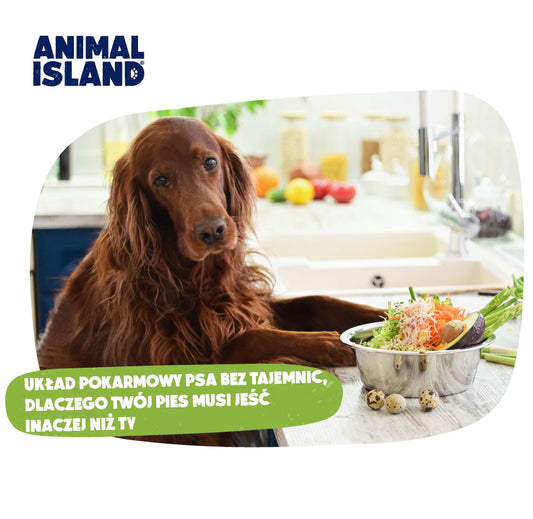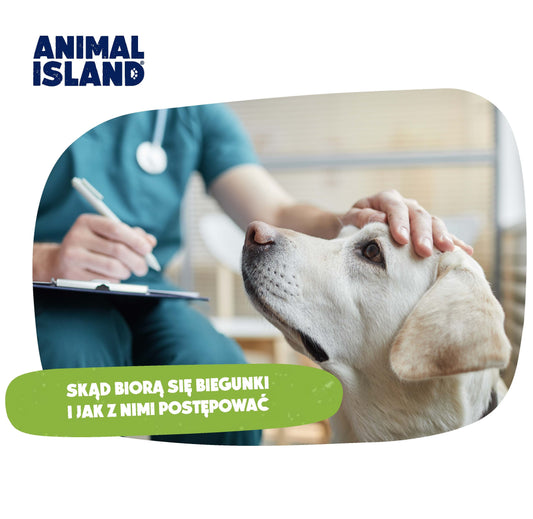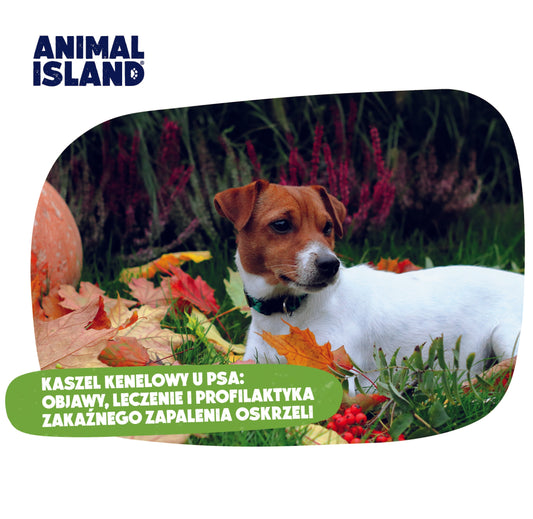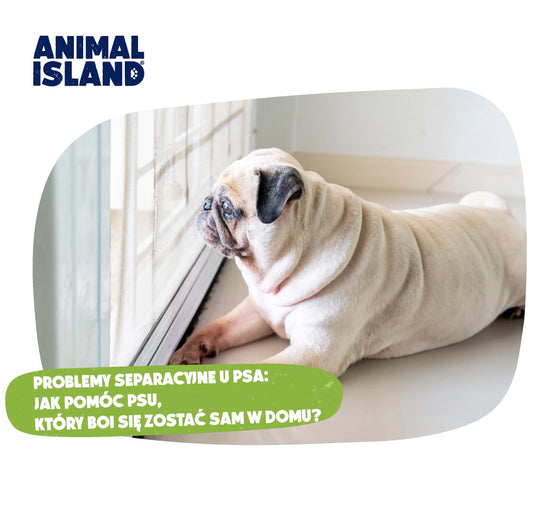SMALL BELLY, BIG CONCERN. HOW TO FEED SMALL BREED DOGS?

Being a Guardian of a small happiness is a great challenge. The diet for small breed dogs differs significantly from the diet of their larger cousins. Small dogs have specific nutritional needs, which result from their faster metabolism, lower body weight and greater activity. A properly balanced diet is the key to their health, energy and longevity. In this article, we will discuss the most important components of the diet for small breed dogs that should be included in their daily menu.
WHAT DO YOU NEED TO KNOW ABOUT SMALL BREED DOGS?
Small dog breeds like Chihuahuas, Yorkshire Terriers, and Maltese share several common characteristics that affect their daily functioning and needs. First and foremost, they tend to have higher energy levels than their larger cousins. Their small bodies are often full of energy and require regular exercise to stay in good shape. When caring for these energy reserves, you need to pay attention to the source of that energy.
Another important aspect is their higher metabolism. You should be very careful not to let hypoglycemia happen.
Hypoglycemia is a condition in which blood glucose levels drop below a safe level. This happens more easily in small dogs (especially miniature dogs and puppies) than in larger breeds.
Why?
- · have a very fast metabolism,
- · their body uses energy much faster,
- · they have a small supply of glycogen in the liver, which could balance the sugar level if necessary,
- · they often eat small portions and not always regularly, and longer breaks in feeding are risky for them.
Small dogs burn calories faster than larger breeds, which means they need a higher calorie diet. Their bodies need to be regularly supplied with energy to stay active and healthy.
The influence of physical characteristics on nutritional needs
Due to their smaller stomachs, small breed dogs are not able to take in a large amount of food at once. Therefore, it is important that their diet is not only caloric, but also divided into smaller portions given several times a day. This will avoid digestive problems and provide them with constant access to energy. Because a small tummy has its own big needs!
Diet of small breed dogs
When planning a diet for a small dog, it is worth paying attention to the composition of the food. It should contain the right amount of protein, fats and carbohydrates. Protein is crucial for building muscle and regenerating tissues, fats provide energy, and carbohydrates are a source of easily digestible energy. It is also important that the food is enriched with vitamins and minerals that support the health of the entire body.
Caloric value of food for small breed dogs
When we talk about the caloric content of food, it is worth remembering that it is not only about the quantity of calories, but also their quality. Calories should come from valuable ingredients that provide essential nutrients. Avoid foods that contain too much grain or artificial additives - they can burden the digestive system and lead to health problems.
PRIORITY DIETARY INGREDIENTS
Protein – the foundation of health
Protein is the basic building block of the body and a key component of every dog's diet, especially small breeds. These dogs need high-quality protein, which provides essential amino acids that support muscle development, tissue regeneration and overall vitality. The best sources of protein are meats such as poultry, lamb or fish. It is important that the protein comes from natural and easily digestible sources, which ensures optimal use of nutrients by the dog's body.
Fats – a source of energy
Fats are not only a flavor carrier, but above all a concentrated source of energy. Small breed dogs, due to their high activity, need an appropriate amount of fat in their diet. Fats provide essential fatty acids, such as omega-3 and omega-6, which support the health of the skin, coat and nervous system. Fish and vegetable oils, such as linseed oil or salmon oil, are an excellent supplement to the diet with healthy fats.
Vitamins and minerals – support for the body
Vitamins and minerals play a key role in maintaining the health of small breed dogs. B vitamins, vitamin A, D, E and minerals such as calcium, phosphorus, magnesium and zinc are essential for the proper functioning of the immune system, bone health, teeth and metabolic processes. It is worth paying attention to foods enriched with these ingredients or using supplements that will replenish any deficiencies.
Carbohydrates – easily digestible energy
Carbohydrates play an important role in a dog's diet. They provide an easily digestible source of energy, which is essential for active small breed dogs. Carbohydrates from vegetables and fruits also provide fiber, which supports a healthy digestive system. It is important to choose foods with carbohydrates with a low glycemic index, which prevents sudden spikes in blood sugar levels.
Nutrient ratios
According to expert recommendations, the diet of small breed dogs should consist of around 40% protein, 20-25% fat, and 30-35% carbohydrates. This proportion provides a balanced level of energy and nutrients that support the health and vitality of the dog. It is worth remembering that each breed and individual dog may have slightly different needs, so it is always worth consulting a veterinarian or animal nutritionist.
EVEN MORE ABOUT PROTEIN!
The best sources of protein
The best sources of protein are animal protein. Make sure your pet's diet has a higher proportion of animal protein than plant protein. Poultry, fish, and lamb are excellent examples of ingredients that should be included in the diet of small dogs. They are not only rich in protein, but also provide other essential nutrients.
Poultry, such as chicken or turkey, is easily digestible and provides a large amount of protein that is easily absorbed by the dog's body. Fish, on the other hand, is not only a source of protein, but also omega-3 fatty acids, which support healthy skin and fur. Lamb is another valuable ingredient that provides protein and many vitamins and minerals.
High quality food
In the diet of small breed dogs, protein should come from high-quality products. That is why it is worth choosing food that contains natural ingredients and is free from artificial additives. Food with high-quality protein ensures that your dog receives all the necessary nutrients that support its health and well-being.
WHICH FOOD SHOULD I CHOOSE FOR A SMALL BREED DOG?
Dry food
Dry food is very popular among owners of small breed dogs. Its main advantage is convenience - it is easy to store and serve.
Wet food
Wet food, on the other hand, is more moist and better digestible, making it an excellent choice for dogs that have trouble staying hydrated. Wet food has a more intense taste and smell, which can be particularly appealing to picky dogs. Thanks to its high water content, wet food supports the functioning of the kidneys and urinary system, which is important for the health of small dogs.
Feed mix
A food blend, or a combination of dry and wet food, is an option that allows you to benefit from both types of food. This diet provides the dog with a full range of nutrients and also diversifies its daily meals. Remember to maintain the right proportions and adjust the amount of food to the individual needs of the dog.
Premium feeds
When choosing food for a small breed dog, look for premium foods that contain high-quality ingredients tailored to the specific needs of these animals. These foods are often rich in protein, healthy fats, and vitamins and minerals that support healthy skin, fur, and the immune system. Premium foods also contain additives that support joint and digestive health.
DRY OR WET FOOD?
Choosing the right food for your pet is one of the most important decisions. Especially when we are talking about small breeds that often have specific nutritional needs.
Advantages and disadvantages of dry food
Advantages:
Long shelf life : Dry food is known for its long shelf life. This means that we can buy it in larger quantities, which is more economical.
Defects:
· Less palatable : For many dogs, especially small breeds, dry food may be less palatable than wet food.
· Less water content : Dry food contains significantly less water, which can be problematic for dogs that do not drink enough fluids.
Advantages and disadvantages of wet food
Advantages:
· Better texture and taste : Small dogs often prefer wet food due to its softer texture and stronger smell.
· Increased water content : Wet food is an excellent source of additional water, which helps keep your dog hydrated.
· Easier to chew : For older dogs or those with dental problems, wet food is easier to consume.
Defects:
· Shorter shelf life : Once opened, wet food must be used quickly or stored in the refrigerator, which can be less convenient.
· Higher price : Wet food is typically more expensive per serving than dry food.
A combination of both types of food
Many experts recommend combining both types of food in a dog's diet. This strategy allows you to meet the different nutritional needs and taste preferences of the dog. For example, you can give dry food as the basis of the diet, and wet food as a tasty addition or reward.
HOW OFTEN TO FEED?
Properly dosing your small dog food is essential for their health and well-being. Small dogs, due to their fast metabolism and smaller stomachs, require more frequent feeding than their larger cousins. It is usually recommended to feed them up to 5 times a day. Why is it so important to follow this recommendation?
Fast metabolism and smaller stomachs
Small dogs have a higher metabolism than larger breeds, which means they burn calories faster. As a result, they need more frequent energy intake to maintain their activity levels and health. Their smaller stomachs cannot accommodate large amounts of food at once, making regular meals essential.
Better digestion and nutrient absorption
Feeding small portions of food several times a day promotes better digestion and assimilation of nutrients. This allows us to be sure that our dog receives all the necessary vitamins and minerals that are crucial for its health. It also minimizes the risk of stomach problems that can occur when feeding too large portions of food.
Monitoring your weight and adjusting your meals
It is extremely important to regularly monitor your dog's weight and adjust the number of meals based on their activity and age. Puppies that are growing and developing may need more calories than adult dogs. On the other hand, older dogs that are less active may need smaller portions to avoid gaining weight.
Feed dosing – how to do it?
The dosage of food should be adjusted to the individual needs of the dog. Pay attention to the recommendations of the food manufacturer, but also observe the reactions of our pet. If the dog is too thin, the amount of food can be increased, and in the case of overweight - reduced. It is important to do it gradually and with caution.
Meal frequency and dog's health
Regular meals help maintain a steady energy level in your dog, which is especially important for active breeds. This also helps avoid drops in blood sugar levels that can lead to weakness and other health problems. Frequent feeding also allows for better control over your dog's eating habits and prevents excessive appetite.
A PORTION FOR YOUR LITTLE, BIG LOVE
Approximate portion size recommendations
It is assumed that in mini breeds it is about 100 kcal per 1 kg of body weight, but it is very important to observe and monitor the dog's weight.
Adjusting portions to individual needs
Every dog is different, so it's important to tailor their food portions to their specific needs. Active dogs that spend a lot of time outdoors may need larger portions than dogs with less activity. Senior dogs may require fewer calories because their metabolism slows with age.
Caloric value of a small breed dog's diet
A small breed dog's diet should be well-balanced and provide all the necessary nutrients. It is important that the food is rich in protein, which supports muscle development and healthy skin, as well as fats, which provide energy.
ADDITIONAL TIPS
Regular access to fresh water
A fundamental element of a healthy diet is to provide your dog with constant access to fresh, clean water. Small breed dogs, due to their high activity, can become dehydrated more quickly, so it is important to keep their bowls full at all times. Water aids digestion, regulates body temperature, and supports the dog's overall physical condition.
Weight monitoring
Small breed dogs are particularly susceptible to weight problems, which can lead to obesity and related health problems. Regularly weighing your dog can help you quickly spot any unwanted changes in weight. It is a good idea to consult your veterinarian to determine what weight is best for your breed and individual dog.
Adapting your diet to your life stage
Like humans, dogs have different nutritional needs depending on their age. Puppies require a diet high in protein and calories to support their rapid growth and development. Adult dogs, on the other hand, need a balanced diet that provides them with energy for daily activities but does not cause weight gain. Seniors may require a diet low in calories but rich in vitamins and minerals that support joint and immune health.
Consultation with a veterinarian
Regular visits to your veterinarian are essential for monitoring your dog’s health and adjusting their diet to their changing needs. Your veterinarian can help you choose the right food, as well as identify any food allergies or other diet-related health issues.
Variety of diet
While dry food is a staple in many dogs' diets, it's worth adding variety to their meals from time to time. This can be done by adding fresh vegetables and fruits to their diet, which are a source of vitamins and fiber. However, it's always a good idea to consult your vet before introducing new ingredients to your dog's diet.
Avoiding overfeeding
Small dogs often have a big appetite, which can lead to overfeeding and obesity. It is important to control the amount of food given and avoid giving too many treats. It is also worth remembering that physical activity is key to maintaining a healthy weight and health of your dog.
CHOOSING THE RIGHT FOOD
There are various foods available on the market designed specifically for small breed dogs. When choosing food, it is worth paying attention to its composition and nutrient content. Good quality food should contain high-quality protein, fats, vitamins and minerals. Avoid products containing artificial additives, preservatives and fillers.
ANIMAL ISLAND DOG FOOD FOR SMALL BREED DOGS
- · Perfect food for mini breeds
- · 100% animal protein
- · No chicken, no grain
- · Fish oil - shiny coat
- · Inulin - healthy digestion
- · Taurine - heart protection
WET DOG FOOD FOR MINI BREEDS
In summary, a proper diet is key to the health and longevity of small breed dogs. Regular access to fresh water, monitoring weight, adjusting the diet to the stage of life and choosing the right food are the basic steps that every Guardian should take. Thanks to this, our little friend will enjoy health and energy for many years. Remember that the health of our four-legged friends is in our hands, so it is worth taking care of their diet with the same care as your own.


 Wścieklizna
Wścieklizna



 Zęby i jama ustna – stworzone do chwytania, nie mielenia
Zęby i jama ustna – stworzone do chwytania, nie mielenia




 ROZSĄDNA DIETA, BY ZAPOBIEGAĆ BIEGUNCE W PRZYSZŁOŚCI
ROZSĄDNA DIETA, BY ZAPOBIEGAĆ BIEGUNCE W PRZYSZŁOŚCI








